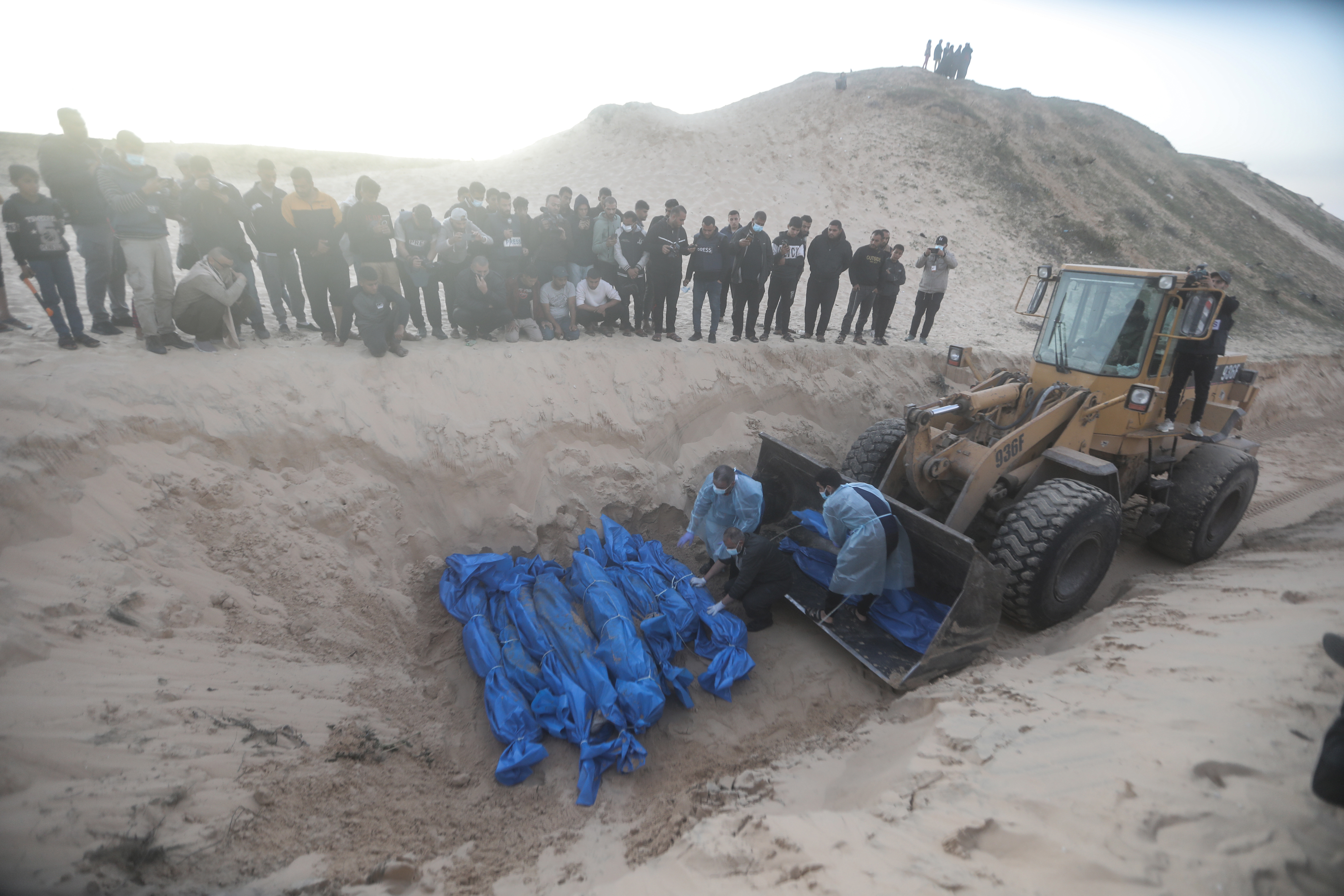Clay Higgins Built His Brand on Law and Order. He Pals Around With a Man Guilty of Incest.
In 2015, Clay Higgins started his climb to Congress with a series of videos promising to hunt down lawbreakers. As a spokesman for the St. Landry Parish Sheriff’s Office in Louisiana, Higgins generated national attention by making Crime Stoppers public service announcements as straight-to-camera monologues. His menacing promises got him billed as the “Cajun John Wayne” in coverage by CBS News and the Washington Post.
In reality, public information officer Higgins was neither Cajun nor much of a street cop. It did not matter. In 2016, he ran for Congress as a Republican and rode his law-and-order image to Washington. As a congressman, Higgins has kept up the act: He recently made news and drew threats of congressional censure after posting a transparently racist rant about how Haitian immigrants are “thugs.”
Higgins’ carefully cultivated brand centers almost exclusively on law enforcement. His campaign logo features him in his police uniform. He has served as a reserve officer with the Louisiana Department of Justice while in Congress and is known for communicating in cryptic military jargon typical of right-wing militias. Expected to win easily in November, Higgins is believed to harbor ambitions of running for Senate in 2026. If he does, he will almost certainly continue to make his work as a cop central to his message to voters.
But a Mother Jones investigation has revealed a major problem with his pitch: Some of the former Louisiana cops Higgins has associated with have been accused by law enforcement officials of severe wrongdoing—including allegedly participating in a sex trafficking ring in one case and of committing incest in another.
One of the most troubling of these connections, which has not been previously reported, is with an old friend from the St. Landry Parish Sheriff’s Office: Leon Boudreaux. Higgins has been a member of the motorcycle group dubbed the Kindred Vets that Boudreaux founded, and the two are seemingly close. They appear together in numerous photos posted to one of Higgins’ Facebook pages, and they are also pictured together in photos posted by the Kindred Vets in 2022 and 2023.
In 2021, a year prior to Higgins posting a photo with his hand clasped with Boudreaux’s, a New Mexico jury convicted Boudreaux of incest after a teenage relative accused him of sexually assaulting her between the ages of 14 and 18.
Boudreaux confirmed to Mother Jones by phone on Thursday that he is a longtime friend of Higgins and that he rides motorcycles with him. Boudreaux said that Higgins was aware of the charges that had been brought against him. “Back when all that happened, he did call me,” Boudreaux explained. “He called to check on me. But we don’t really talk about that kind of stuff.”
Asked whether he was surprised that the incest case had not impacted their friendship, Boudreaux replied, “Not at all.” He continued, “Clay knows me. Knows I didn’t break any laws. It’s just the way it went.” Boudreaux ended the interview after saying that he did not want to be a part of an article that would “discredit” the congressman. (Higgins’ office did not respond to a detailed request for comment.)

Higgins’ willingness to appear with Boudreaux after the conviction is notable considering his public policy positions. He has repeatedly spread fears of the dangers of sex traffickers and sexual predators coming across the US-Mexico border. In a congressional resolution introduced in May, he warned about how a Haitian migrant had been arrested for the “sexual assault of a 15-year-old girl” in Massachusetts. Higgins has also said it should be illegal for women to have an abortion—including in cases of rape and incest.
Before working with Boudreaux in St. Landry Parish, Higgins served in the nearby Opelousas Police Department. He ended up there in his 40s after trading what he has described as a lucrative job managing car dealerships for a law enforcement position that paid $8 an hour.
His time included discord. In 2007, Higgins and fellow Opelousas officer John Chautin assaulted an unarmed Black man while on duty, according to an internal police investigation and reporting from the Louisiana outlet Bayou Brief. Higgins was caught lying to a police investigator and resigned rather than face discipline. Chautin, who was disciplined for his conduct, has since followed Higgins into politics: He is now the congressman’s district director. (In a 2015 email, Higgins described Chautin, who did not respond to the request for comment sent to Higgins’ congressional office, as his “best friend, work out partner and assistant Sensei.”)
Jerod Prunty is another former cop in Higgins’ orbit who caught the attention of law enforcement. In 2019, Louisiana police arrested Prunty and nine others following a 17-month investigation while he was working in Higgins’ district office as a field representative. Police alleged that Prunty was part of a sex-trafficking ring involving Chinese women who were reportedly forced to live and perform sex acts at local massage parlors. “We are shocked and saddened to learn of allegations against Jerod,” a spokesperson for Higgins said in a statement before Prunty resigned. (Prosecutors did not pursue charges against Prunty, who did not respond to a request for comment sent by email.)
Aimee Robinson, a local activist involved with the state and parish Democratic parties, said Higgins is well liked in the district, despite these controversies. “It’s like Trump, he would have to shoot somebody in the middle of the street, and even then, we’re not sure that it would matter,” she explained. (Robinson’s willingness to criticize Higgins on the record was unusual among the people Mother Jones contacted for this story, many of whom feared retribution; she said she’d recently told a friend concerned for her safety for speaking out that she has “three big dogs and a revolver” and that her address is “123 I Wish A Motherfucker Would.”)
Higgins has also courted his own share of controversies beyond the use of excessive force in Opelousas. In 1991, the first of his four wives accused him in court of holding a gun to her head, according to court records reviewed by Mother Jones. (Higgins denies the accusation made by his ex-wife, who later died.)
In the lead-up to his 2016 election, his second wife released recordings in which the two discussed the more than $100,000 in child support Higgins reportedly owed. It is unclear whether Higgins has settled that debt and, unusually for a representative, his congressional financial disclosure form lists no assets.
After leaving the Opelousas department in 2007, Higgins got a job with the Port Barre Police Department, where the bike group leader Leon Boudreaux’s identical twin brother, Deon, was the chief of police. After about three years, Higgins went to St. Landry Parish, where he worked with Leon.
Higgins was working as a night patrolman—not a particularly distinguished position for a more than 50-year-old cop—when he became the department’s public information officer. Higgins used his new role to turn himself into something of a local celebrity in viral Crime Stoppers videos. He often addressed alleged criminals in degrading language. “I can just imagine his very limited brain cells,” Higgins said in one 2015 video as a Black man appeared to rob a gas station convenience store. In another, he wondered whether Black suspects had used “even one” of their “combined eight or ten brain cells.” (In 2022, Rep. Alexandria Ocasio-Cortez chastised Higgins after he referred to a Black woman testifying before them in Congress as “boo.”)

Before being pushed out of the department by Sheriff Bobby Guidroz in 2016, Higgins tried to capitalize on the notoriety generated by the St. Landry Parish videos by pitching a reality show called American Justice, starring himself, that was never produced. Episodes of his crime-hunting show were to be based around themes such as “sex crimes” and “crimes affecting children,” Higgins explained at the time. In 2015, he sent a potential list of “Regular interaction characters” for the show. The first name was Leon Boudreaux and another was that of his “close friend” Deon Boudreaux.
Four years later, police officers in Raton, New Mexico, arrested Leon Boudreaux after he had sex with a teenage relative in a local hotel room. According to a statement of probable cause obtained by Mother Jones via a public records request, the then-18-year-old victim stated she had been sexually abused by Boudreaux for the past four years.
“I gave him consent because I’m scared,” she said about what had just happened. “I’m so scared right now.” She told the officer that she had been raped by Boudreaux in the past but eventually “just started giving in.” She was afraid that Boudreaux, a short but physically imposing bodybuilding aficionado, would kill her if she said no to his advances—telling a police officer that he had a firearm with him at the time, according to the statement of probable cause. (Police found a .357 Magnum loaded with hollow point bullets and a roughly six-inch knife in his backpack.)
According to an arrest report obtained via a public records request, Boudreaux claimed in a police interview that he had fallen asleep wearing his underwear only to wake up and realize that his relative had begun having sexual intercourse with him. He added that he ejaculated against his own will before he could push her off him. Boudreaux told police that he had been taken advantage of by his teenage relative, but that he did not want to press charges.
Boudreaux said that the victim had previously accused him of rape in Port Barre. He explained that he learned of the accusation from his twin brother, the Port Barre police chief. Leon Boudreaux then got his teenage relative to recant in a conversation that he recorded, according to the police report and the Lafayette Daily Advertiser. (Deon Boudreaux did not respond to a voicemail seeking comment regarding his handling of the accusation.)
The relative then fled the state for Colorado. Leon Boudreaux tracked her down there, according to a person familiar with the case. He committed incest as they made their way back to Louisiana. (Boudreaux told New Mexico police that the victim called and asked him to pick her up in Colorado.)
Boudreaux also told the officer that a second young relative had previously accused him of wanting to have sex with her. He added that an unspecified investigation had deemed the claim unfounded. That conflicted with what the victim told New Mexico police about how Boudreaux had sexually abused both her and another relative.
Along with incest, Boudreaux was later charged with two counts of criminal sexual penetration. (A New Mexico judge prevented the latter charges from being brought to trial.) During the trial for incest, Boudreaux’s relative took the stand against Boudreaux, who did not testify, according to the prosecutor who tried the case. The judge deemed the years-long period during which Boudreaux allegedly raped his then-minor relative in Louisiana to be inadmissible. Nevertheless, in February 2021, a New Mexico jury found Boudreaux guilty on the incest charge, a felony offense.
In October 2021, he received a suspended sentence and three years of probation. The prosecutor, who requested anonymity, said the district attorney’s office had sought jail time. The prosecutor shared a victim statement that they said was read during the sentencing. In it, Boudreaux’s relative stated:
At 14, he began sexually abusing me. Although I cannot go into further detail on the events that happened prior to this case, I’d like to state that for 4 years, I suffered. For 4 years, he satisfied himself with a child. Manipulating me that because of his authority and public image, that just like my [relative] who had reported him of the same thing previously, that it would not go far and nobody would believe me.

After the arrest, a handful of Louisiana outlets reported on the case. Leon Boudreaux objected to the Advertiser’s coverage of his then-upcoming trial. “My character has been tarnished,” he complained. His twin brother, the Port Barre police chief, said that the story was an attempt to “jump on the anti-police rhetoric bandwagon for ratings.”
The year after Boudreaux’s conviction, Higgins wrote a Facebook screed with a familiar mix of righteous indignation and pretension of speaking for real Americans. Addressed to “You elitists, you woke arrogant hypocrites of both parties,” the congressman explained that “you keep poking us in the chest and eventually you’re going to get a response.” Higgins signed the post: “Respectfully, We the People.”
In the accompanying photo, Higgins wears his Kindred Vets motorcycle gear. A thin blue line patch is clearly visible on his leather jacket. His right hand rests on Leon Boudreaux’s shoulder.













 (@catturd2)
(@catturd2)